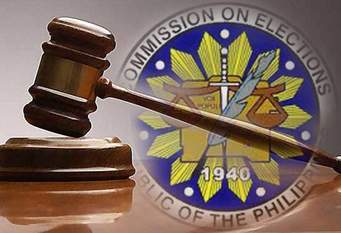“Mas madali pa ata magfile ng COC (Certificate of Candidacy) kaysa pumasa ngayong college.”
This tweet from Bianca Reyes is among the frustrated reactions of some netizens as considerably large numbers of presidential aspirants filed their COC for the 2016 elections.
No matter if you are a famous celebrity, a landlord, a tricycle driver, or someone who just happens to pass by the Commission on Election (Comelec) office, as long as you meet the basic requirements, you can file your certificate of candidacy as president. This allows over 300 presidential aspirants to file their candidacy for the upcoming election.
However, according to recent reports, 266 of them might not be allowed by the Comelec to run for presidency, and most likely only five of them would be considered legitimate candidates. The rest will be considered “nuisance.”
A candidate is considered “nuisance” when he files a COC “to put the election process in mockery or disrepute or to cause confusion among the voters by the similarity of the names of the registered candidates or by other circumstances or acts which clearly demonstrate that the candidate has no bona fide intention to run for the office for which the certificate of candidacy has been filed, and thus prevent a faithful determination of the true will of the electorate” as defined by the Omnibus Election Code.
However, for some, it is difficult to identify if a candidate is really nuisance or not. The Comelec’s basis for the legitimacy of a candidate suddenly becomes blurry as more people started questioning how the Comelec could truly measure one’s intention of running for presidency.
In his opinion article in the Philippine Daily Inquirer, Randy David stated that it is difficult to clearly differentiate nuisance candidates from the rest of the aspirants.
“What is a fair measure of a presidential candidate’s capacity to mount national campaign? It cannot be money, for that would disqualify the poor, or sheer physical stamina, for that would exclude the sick and the elderly… Should the Comelec prejudge their capability to conduct a nationwide campaign?” David wrote, making the COMELEC’s requirement of a “proof to mount a national campaign” from the candidates unclear.
David added that politicians who are facing criminal charges and who have been “objects of a protracted official investigation” but still run for presidency are the ones who make mockery of the election, thus should be considered “nuisance.” The level of their mockery can even exceed those low-class aspirants who run with good intentions.
Other people also perceive that there are only two categories where an aspirant might belong: the known and the lesser known, discarding all other requirements set by the Comelec. This has also become a basis of the legitimacy of a candidate, the known being legitimate, the lesser known being nuisance.
Just recently, however, Comelec has already filed cases the 266 candidates who might be considered nuisance and might not be allowed to run for presidency. They, in return, will have to defend the legitimacy of their candidacy. The Comelec made it clear that these candidates are not automatically disqualified for they might not possess the disqualification the law provides, even though, for some, it is already obvious that only five – the “known” candidates – will make it to the list.
Running for presidency actually requires only five qualifications. If someone is a natural-born citizen, a registered voter, able to read and write, 40 years old, and has been residing in the country for at least ten years, then he is qualified to run as president. If this is the only measure of a candidate’s legitimacy, then the Comelec does not have to disqualify hundreds of presidential aspirants.
The COMELEC was consistent in saying that it is everyone’s right to file their COC, for denying them from doing such would be “contrary to the idea of democracy.” This is why even the 51-year-old missionary Romeo Jhon Ygona alias “Lucifer,” who claimed to have been called by the Divine Being, can file his COC for president.
However, this is a battle between being democratic and being practical.
As the Supreme Court once mentioned, the State “has a compelling interest to ensure that its electoral exercises are rational, objective, and orderly. Towards this end, the State takes into account the practical considerations in conducting elections. Inevitably, the greater the number of candidates, the greater the opportunities for logistical confusion, not to mention the increased allocation of time and resources in preparation for the election… Ultimately, a disorderly election is not merely textbook example of inefficiency, but a rot that erodes faith in our democratic institutions.”
Indeed, weeding out nuisance candidates is a pivotal yet difficult part of the election process. The future of this country seemingly lies on the Comelec’s ability to choose which among the candidates are qualified to prove that they can genuinely serve the nation. At the end, however, the greatest mission still lies on our hands: to decide, to choose, to vote.
